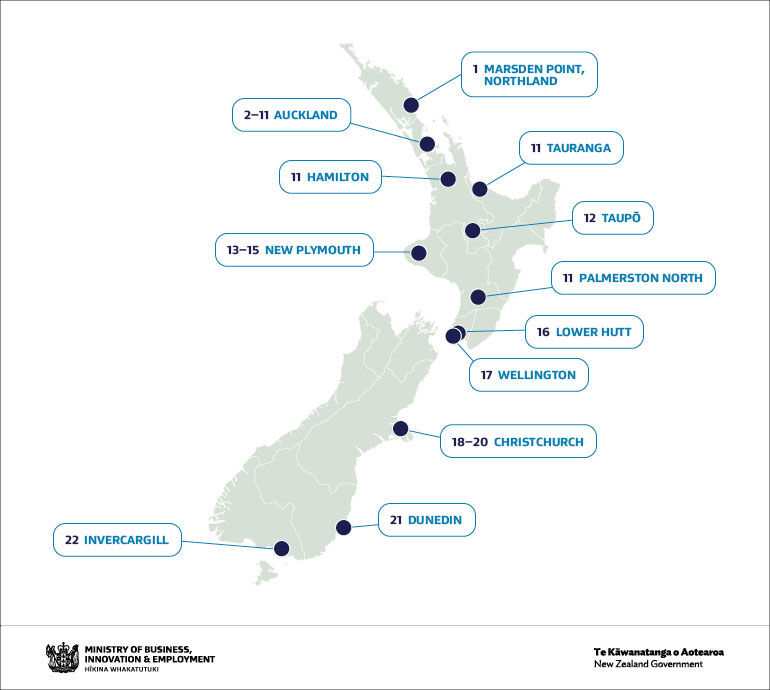New Zealand has a highly renewable electricity system and significant potential for new generation capacity that could be used to produce green hydrogen as a next generation, low-emissions fuel and energy carrier. Green hydrogen has the potential to help reduce our emissions in some hard-to-electrify applications such as long-haul heavy transport, specialty vehicles, industrial feedstocks, process heat, and in future aviation and marine transport.
Growing New Zealand’s hydrogen industry presents an opportunity to help New Zealand achieve its commitments to reduce net emissions of all greenhouse gases (except biogenic methane) to zero by 2050, create highly-skilled jobs, and could underpin our energy security and resilience by reducing dependence on imported fuels and providing back-up power options.
Hydrogen in New Zealand has potential to support decarbonisation efforts overseas through a future market for export trade of hydrogen or hydrogen-based derivatives. It will be important to ensure be able to increase renewable electricity generation and transmission capacity to match this ambition, without compromising our domestic electrification goals.
As part of 'Electrify NZ' the Government has committed to doubling renewable energy by 2050, and has a programme of work underway to remove red tape to support the private investment needed to achieve this goal.
Consultation on the Interim Hydrogen Roadmap
In late 2023, MBIE consulted on the Interim Hydrogen Roadmap, which:
- sets out the Government’s initial position on the opportunities for hydrogen in New Zealand’s energy transition,
- outlines actions the Government is taking to establish a sustainable and safe hydrogen industry in Aotearoa New Zealand, and
- signals areas where the Government plans to do further work.
We sought feedback on our understanding of the opportunities and trade-offs for using hydrogen in New Zealand, and the proposed role the Government could play in supporting it. The consultation closed on 2 November 2023, 5pm.
For more information, visit:
mbie.govt.nz/ourenergyfuture


